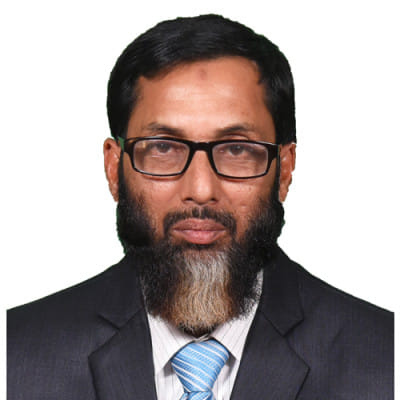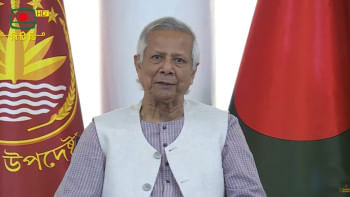Outrage over MP’s rape comments

Human rights activists and feminists expressed grave concern over the words of independent MP of Bogura-7 Md Rezaul Karim Bablu, who said in parliament on Tuesday that feminists are to blame for the rape incidents across the country.
Bablu even resorted to comparing women to tamarinds in line with the late Amir of Hefajat-e-Islam Allama Shafi's words in 2013.
While passing the Women and Children Repression Prevention (Amendment) Bill, 2020 -- which added the provision of death penalty for rapists -- several MPs proposed circulating the bill to elicit public opinion and sending it to a select committee.
MP Bablu said, "In the name of women's liberation, feminists are continuing to expose women. This has increased the acceptability of rape so much among rapists that they are encouraged to commit the act," he said.
Referring to Shafi's words in 2013, comparing women to tamarinds, Bablu also said, "If the tamarind theory of Allama Shafi could have been applied, the rapists would be discouraged from rape… and religious sentiments would grow within them."
REACTIONS OF WOMEN RIGHTS ACTIVISTS
Coming down heavily on the independent MP, Shireen Haq, founding member of Naripokkho, said he is an uncivilised person who has spoken like a "Neanderthal".
"It appears that the light of education or knowledge has not touched him at all. There is a term -- Neanderthal -- to describe a man like him," she also said.
She said this parliament is not working for women. Not a single MP or the state minister for women or Speaker, or even the prime minister said anything against the MP or protested his remarks, she added.
Calling the statement "cheap", Manusher Jonno Foundation (MJF) Executive Director Shaheen Anam said rights activists have been fighting to change the mindset of common men so they can respect women, which would help bring equality between women and men.
"But if the mindset of lawmakers is like this, I don't know what to say in this regard. I just want to ask him, why do the children or the madrasa girls or the women wearing Burqa get raped? Statements like this just instigate and encourage the rapists," she added.
She also expressed concern over the silence of female lawmakers after his statement.
Women's rights activist Khushi Kabir, coordinator of Nijera Kori, said "We expect the lawmakers, who are present in parliament as a representative of the public, to deliver research-oriented, facts-based and responsible speeches in parliament. It would be appreciated if he [Bablu] could gather the information on rape, gang-rape, and sexual violence and analysed the background and clothing of women."
She said since they are elected by the people and receive their tax money, they must not talk in such an irresponsible manner and make baseless comments in parliament.
"The government is inspiring women to be independent, yearning to reach the SDGs [Sustainable Development Goals] to ensure equality for women; we have a policy for women development, a ministry to ensure women's empowerment. The government is creating many opportunities for women to achieve top positions in both government and non-government sectors, and they are becoming the role model for many," she said.
"As a lawmaker, he [Bablu] must know these," added Khushi.
Mentioning the patriarchal mindset of the Bogra-7 lawmaker, Bangladesh National Women Lawyers Association (BNWLA) President Advocate Salma Ali said, "I think the time has come to rethink about who are representing the common people, and how they are being elected.
"Those who talk about the tamarind theory, consider women as objects, or talk like the burqa and headcover can stop rape, I just want to tell them that I had attended many meetings with more than 450 women wearing burqa, and when they were asked whether they faced sexual harassment, every one of them put their hands up," she said.
"Women's clothing or freedom has no connection with rape; instead, the change of mindset is most important here," she added.
Tamanna Hoq Riti, coordinator, Human Rights Forum of Bangladesh in her Facebook post said, "These days, I wonder from where we should start reforms. We have all gotten rotten. Is it possible to bring any reforms here?"
WILL THE AMENDED BILL SOLVE TH PROBLEM?
While women rights activists have long been demanding comprehensive reform in the definition of rape, criminalising marital rape and the inclusion of special provisions for the rape of a male child, the government on October 13 published a gazette declaring death penalty for the rapists.
After the gazette was published, experts said the amendment did nothing to address the actual reforms being demanded. A month later, the statistics support the assertion.
According to statistics from leading human rights body Ain o Salish Kendra (ASK), in September this year, 86 women and children were raped and 16 women were gang-raped, while two were murdered after rape.
However, after the gazette was published in October, a total of 374 women and children were raped, 69 women were gang-raped, and three were murdered after rape.
Human rights activist Nur Khan said, "I fear incidents of killing after rape may increase in order to destroy evidence, as perpetrators will not want to keep the victim alive to avoid capital punishment."
Shireen Haq also believed that it is an established truth that the severity of punishment will not solve the problem, and said justice must be ensured and there should not be a culture of impunity.


 For all latest news, follow The Daily Star's Google News channel.
For all latest news, follow The Daily Star's Google News channel. 



Comments